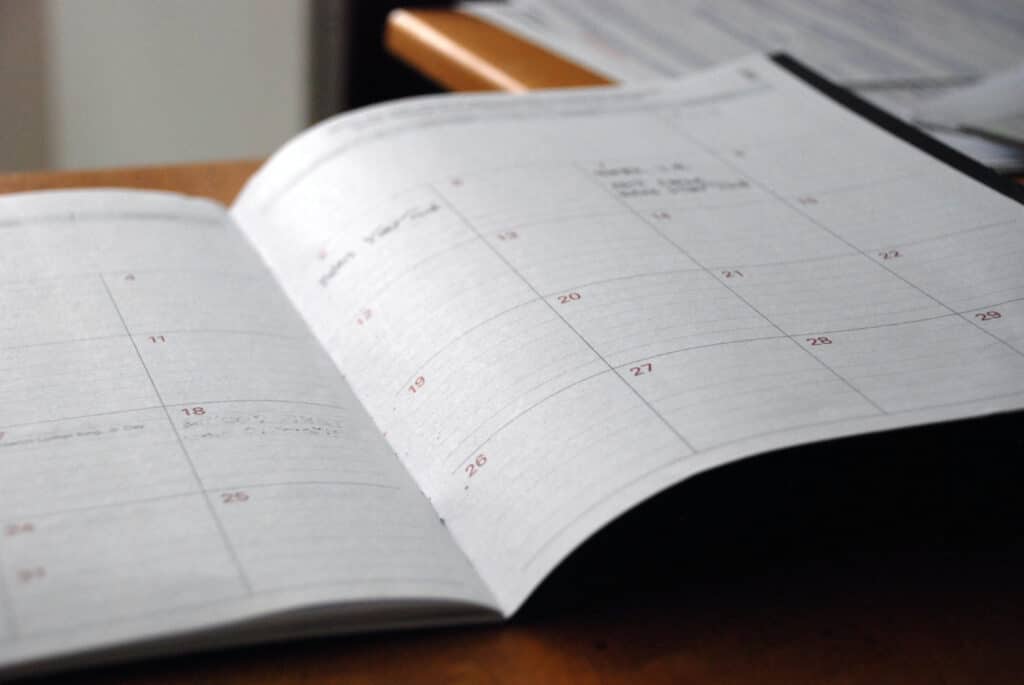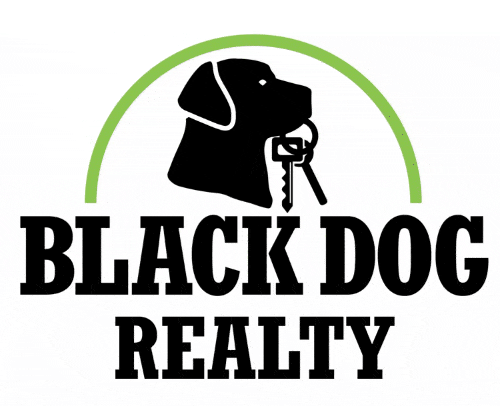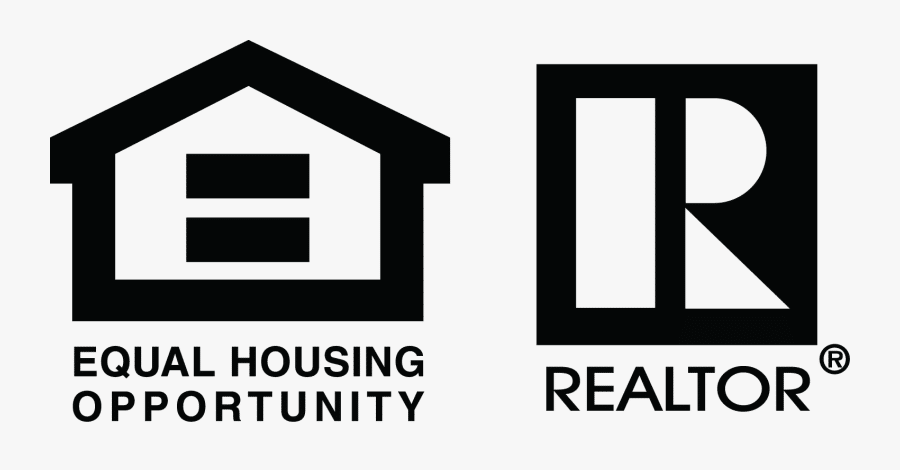Buying a home
Everyone deserves their FURever home.
Let Us Help You Find Your Next Home

The Best Interests Of Our Clients Will Always Come First In Every Transaction. – The Black Dog Realty Team.
Finding the Right Real Estate Agent
Buying a home is one of the most significant purchases you’ll make in your lifetime. To ensure your interests are protected, it’s essential to have an experienced real estate agent in your corner, always looking out for your best interest. A buyer agent’s fiduciary responsibility is to represent the buyer and to ensure that their interests are protected.
After all, a seller has someone in their corner. A listing agent has an allegiance to the seller. Their goal is to get the seller top dollar for their home. There is incredible value in having someone working for YOUR best interests when buying a home.
Prepare Your Finances for Home Buying
How Much House Can You Afford?
Mortgage lenders recommend you do not stretch yourself beyond buying a home that is more than three to five times your annual household income. If you are not purchasing a home with cash, you will need a mortgage pre-approval provided by your mortgage lender. A lender will work with you to get a loan that meets your as needs. Some buyers are concerned with keeping their monthly payments as low as possible, others want to make sure that their monthly payments never increase.

Check Your Credit
A mortgage requires a good credit score. You can improve your score by:
- Paying down credit card balances
- Continuing to make payments on time.
- Avoid applying for a new credit card or car loan.
- Avoid making big purchases.
- If possible, avoid job changes.
Save Cash for a Down Payment and Other Expenses
To make your dream of buying a home a reality, you will need to save cash for your down payment, earnest money, closing costs and home inspection.
- Down Payment – A down payment is typically between 3.5% and 20% of the purchase price.
- Earnest Money – Earnest money is money you put down to show you’re serious about purchasing a home. This is deposited into escrow upon execution of a sales contract.
- Closing Costs – Closing costs for the buyer run between 2% and 5% of the loan amount.
- Home Inspection – A home inspection costs between $300 to $500.
Get Pre-Approved
Being pre-approved, unlike being prequalified, means you’ve actually been approved by a lender for a specific loan amount. You will need to provide documented financial information (income, statements, assets, debt and credit reports, etc.) to be reviewed and verified by the lender.
Preparing for a Home-Buying Loan
Get Qualified for a Mortgage
TYPE OF LOAN |
WHO QUALIFIES |
|---|---|
| VA LOAN |
|
| USDA LOAN | Someone who is buying a home in a USDA-designated rural area. |
| FHA LOAN | Anyone who meets the minimum credit and income levels. |
| 203K LOAN | Anyone who plans to purchase a fixer-upper or needs to renovate their home and meets credit and income requirements |
| CONVENTIONAL 97 | Available to first-time homebuyers, which is defined as at least one borrower hasn’t owned a home within the past 3 years. |
| CONVENTIONAL MORTGAGES |
Anyone who meets lenders credit, income, and debt level requirements. |
Income Qualifications
Qualifying Income for a Mortgage
- W-2 Income/Salary
- Income from part-time jobs
- Income from a second job
- Overtime and bonuses
- Seasonal jobs
- Self-employed income
- Alimony and child support (documentation required)
Non-Qualifying Income for a Mortgage
- Income from the lottery
- Gambling
- Unemployment pay
- Single bonuses
- Non-occupying cosigner income
- Unverifiable income
- Income from rental properties
Documentation Needed for a Mortgage
- W-2s from the past two years
- Three months of pay stubs
- Bank statements (past three months)
- Previous two years of tax returns
- List of your debts and assets
- Divorce decree
- Additional income documentation
Start Home Shopping
We will take notes on all the homes we visit. It can be hard to remember all the details of each home, so take pictures or video to help you remember each home and review the notes you’ve written. Once we have found THE house for you, we will present an appropriate offer based on recent sales and current buyer activity in the area as well as the value of the property in its current condition. Negotiations may take place after the offer is presented.
TIPS
We will be sure to check out the little details of each house.
- Test the plumbing.
- Try the electrical system.
- Open and close the windows and doors to make sure they work properly.
Evaluate the neighborhood and surrounding areas.
- Are the surrounding homes well maintained?
- How much traffic is on the street?
- Is it conveniently located near schools, shopping, restaurants, and parks?

Making An Offer To Buy a House
When to Make an Offer
Congratulations! So you’ve found THE house! In today’s market, when the demand is higher than the amount of properties available, it’s important to act fast!
How Much to Offer
We will review recent sales and current buyer activity in the area, as well as the value of the property in its current condition. With the knowledge of all this information, we’ll determine the price that you would like to offer.
Submitting a Good Offer
There are some components to an offer that makes it more appealing to the sellers.
- Put Your Best Foot Forward – We’ll work together to discuss your options and create your very best offer. Depending on the circumstances, you may have only one chance to make an impression on the seller.
- Put Down a Healthy Earnest Deposit – A larger earnest money deposit shows you are serious.
- Cash Talks – A transaction not dependent on receiving loan approval is more attractive to a seller.
- Shorter Inspection Periods – Try shortening the inspection period to 10 days.
- Offer to Close Quickly – Many sellers prefer to close within 30 days or fewer.
After You Submit an Offer
The Seller could do the following.
- Accept the Buyer’s Offer
- Decline the Buyer’s Offer – This happens if the seller thinks your offer isn’t close enough to their expectations to negotiate further.
- Make a Counter Offer – A counter offer is when the seller offers different terms. If this happens, you can:
- Accept the seller’s counteroffer
- Decline the seller’s counteroffer
- Counter the seller’s counteroffer – You can negotiate back and forth as many times as needed until you reach an agreement or someone chooses to walk away.
Home Buyer’s Offer is Accepted
The seller will sign the agreement, and you are now officially under contract! This period of time is called the contingency period. Now inspections, appraisals, or anything else built into your purchase agreement will take place.
Order a Home Inspection
During the inspection period, we will schedule an inspection with a reputable home inspector to do a thorough investigation of the home. Once this is complete, the inspector will provide us with a list of findings. You can take the issues as-is or request the seller address some or all of the findings. We will be cognizant of not being too nitpicky on small items, while being very careful of potentially significant issues.
Negotiate the Final Home Buying Offer
Issues typically arise after the home inspection, and those issues tend to result in another round of negotiations for credits or fixes.
- Ask for a credit for the work that needs to be done. Likely last thing the seller wants to do is repair work.
- Think “big picture” and don’t sweat the small stuff. Tile that needs some caulking, or a leaky faucet can easily be fixed. Repairs are still up for negotiation and perhaps a small credit would help with closing costs.
- Keep your poker face. The listings agent may be present during inspections and revealing your comfort level with the home could come back to haunt you in further discussions or negotiations.
Order a Home Appraisal
Your lender will arrange for a third-party appraiser to provide an independent estimate of the value of the house you are buying. The appraisal allows all parties involved to know that the price is fair. The loan file then moves on to the mortgage underwriter. If approved, you will receive your final commitment letter that includes the final loan terms and percentage rates.
Property Title Search
This ensures that the seller truly owns the property and that all existing liens, loans, or judgments are disclosed.
Homeowner’s Insurance
You’ll need insurance for the new home prior to closing. This will protect against things like fire, storms, and flooding.
Schedule Your Move
After Signing
- Finalize mortgage
- Schedule home inspection
- Declutter! Sort through every drawer, closet, cupboard, and shelf, removing items you no longer need or like. Donate or sell items that are in good condition.
- Get estimates from moving companies
4 Weeks to Move
- Give 30-day’s notice if you are currently renting
- Schedule movers/moving truck
- Buy/find packing materials
- Start packing!
3 Weeks to Move
- Arrange appraisal
- Complete the title search (The title company will do this.)
2 Weeks to Move
- Secure home warranty (Optional)
- Get quotes for home insurance
- Schedule time for closing
- Contact utility companies (water, electric, cable)
- Change address: mailing, subscriptions, etc.
- Minimize grocery shopping
- Keep on packing
1 Week to Move
- OBTAIN CERTIFIED CHECKS FOR CLOSING or WIRE FUNDS
- SCHEDULE AND ATTEND FINAL WALKTHROUGH
- Finish packing
- Clean
- Pack essentials for a few nights in your new home
- Confirm delivery date with the moving company. Write directions to the new home, along with your cell phone number.
Closing
- Bring your photo ID
- Certified checks
- Homeowner’s insurance
- Any other required documents
- Get your keys to your new house!!

Closing Day
Settlement is when you sign ownership and loan paperwork and receive your new home’s keys! Settlement typically takes an hour.
Closing Disclosure
Lenders are required to provide you with a Closing Disclosure at least three days before closing. This will show you what your final loan terms and closing costs will be. You will have three days to review the statement. This is done to ensure that there are no surprises at the closing table. If there is a significant discrepancy between the Loan Estimate and the Closing Disclosure, we must notify your lender and title company immediately.
Final Walkthrough
We will do a final walkthrough of the home within 24 hours of closing to check the property’s condition. This final inspection takes about 30 minutes to an hour. We will make sure any repair work that the seller agreed to make has been done. We will be sure to:
- Make sure all appliances are working properly
- Run the water in all the faucets and check for any possible leaks
- Open and close garage doors with the garage door opener
- Flush toilets
- Run the garbage disposal and exhaust fans
At the Closing Table
Who will be there:
- Your agent
- The seller
- The seller’s agent
- A title company representative
- Your loan officer
- Any real estate attorneys involved in the transaction.
The closing typically happens at the title company. You will be signing lots of paperwork, so get your writing hand warmed up! Some of the papers you will be signing include the deed of trust, promissory note, and other financial documents.
What to Bring to Closing
- Government-issued photo ID
- Certified Check or Wire for settlement funds.
Receive Your Keys!
Congratulations! It was a lot of hard work, but you are now officially a homeowner!! Time to throw a party and get to know your new neighbors!
Frequently Asked Questions about Buying a Home
Let Us Help You
We’ll help you sell your home and find your next ‘furever’ home.


